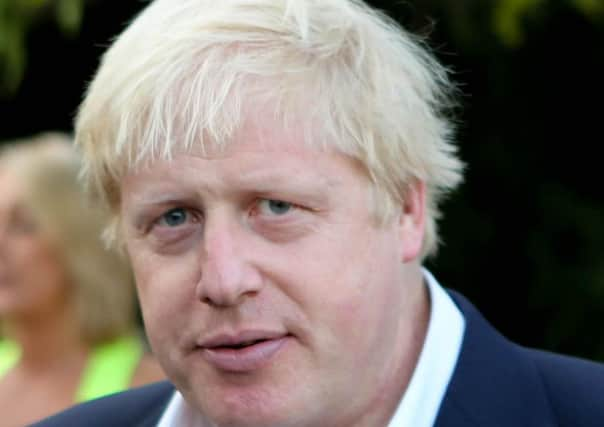Sterling slumps on Brexit result


The electorate have made their choice and the United Kingdom will have to prepare for a future outside the single market after 40 years in an uneasy partnership within the European Union.
The scale of the challenge facing the nation is significant on a number of fronts and it will take several years before the full impact of the decision will be understood.
Advertisement
Hide AdAdvertisement
Hide AdPredictably the financial markets have reacted sharply with the value of sterling taking an immediate hit. Hopefully this will strengthen our exporting businesses and it should help the competitiveness of product sold outside the UK. The trade for fat lambs which are sold directly into the euro zone has seen an immediate price boost in response to the weakening of sterling and milk producers should also see a benefit in the longer term. The flip side is an increase in the price of imported goods and materials which will lead to higher production costs for the livestock sector. Our heavy dependence on imported feeds and fertiliser means that currency fluctuations can have a major impact on the price of essential inputs. The slump in the value of sterling added 10% to the cost of feed materials within 24 hours of the result being announced last week. This comes on the back of the recent surge in global protein prices driven by the poor soya harvest in South America.
Whether the outcome of last week’s historic result is favourable or damaging to the agri-food sector in the long term is down to the skill and commitment of those charged with negotiating the new arrangements.
There are battles to be fought on a number of fronts – the UK must establish new trade agreements with the EU and the wider world which will allow the essential flow of goods and materials in and out of the country. Agriculture will have to fight its corner to ensure these agreements do not damage our domestic food production. It will also have to fight for its share of the UK budget to replace the EU funding in terms of Single Farm Payment, market supports such as intervention and funding for rural and environmental initiatives.
A lot will depend on our local politicians and their ability to influence a Westminster administration which may be more focussed on the consumers than the producers of food. Agri-food is at the centre of the Northern Ireland economy and a strong case will have to be made to ensure that it is not left behind in the scramble for funds.
Advertisement
Hide AdAdvertisement
Hide AdThe process cannot start until some sort of stability is reached in Westminster – new political leaders have to be elected and define the policy objectives before they can engage in the complex negotiations which will be critical to the UK economy. Those, like Boris Johnston, who were at the forefront of the Leave campaign can be expected to play a major part in defining the new direction.